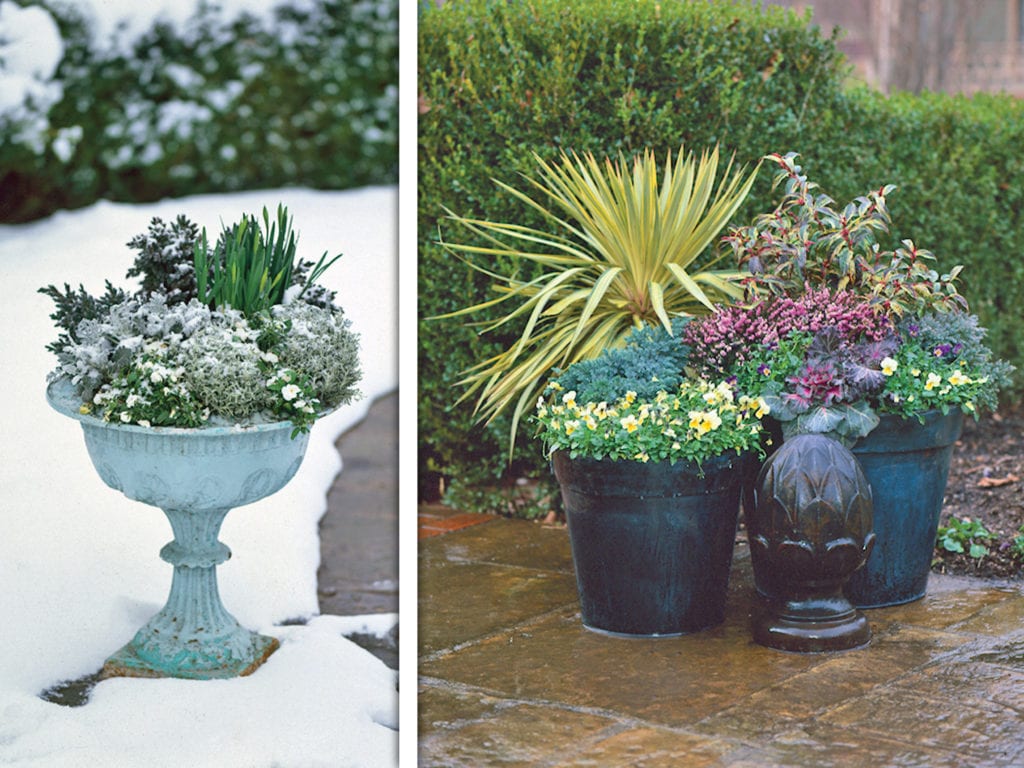I’ve always loved container gardening. It’s a sign that spring has arrived when I get to use colorful annuals like coleus and petunias to create ‘art’ for my porch, garden walkways and even vegetable garden. But should container gardening be limited to warm weather months? It doesn’t have to be. With a little preparation, you can design and enjoy cool- and cold-weather containers.
One clever way of adding a layer of protection to your containers—and plants—is to wrap pots in bubble wrap or sheets of styrofoam. Get around this ingenious but tacky-looking solution by layering the material inside the pot, or wrap the exterior of the pot with a decorative, seasonal material like burlap. If you leave the bubble wrap or Styrofoam exposed, you are at risk of having your neighbors report you to the garden police.
Next, use a good quality potting soil—never garden soil. Potting soil is the perfect growing medium, ensuring that plant roots don’t get soggy.
Most importantly, have fun selecting plants! For winter container gardening, I almost exclusively use perennial plants and shrubs. They can be beautiful and tough, and you can either repot in the spring or move them to your garden. The rule of thumb is to select plants that are two zones hardier than your current plant zone.
Watering your containers in the winter is just as important as it is in warm weather. I check my winter containers once or twice a week and really drench them when they’re dry. I take a break from watering once the potting soil is frozen.
As I clean out my containers and compost what’s left of my summer annuals, I won’t feel any pangs that my container gardening season is over. I get to breathe new life into these displays for the coming winter and extend their beauty with year-round enjoyment—and you can, too.
P. Allen Smith is an author, conservationist and TV host of Garden Home on PBS and Garden Style (check your local listings). He uses his Arkansas home, Moss Mountain Farm, to promote the local-food movement, organic gardening and the preservation of heritage poultry. For tours of the farm, visit pallensmith.com/tours.
